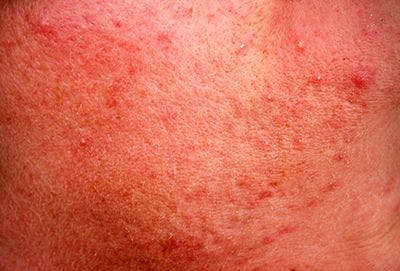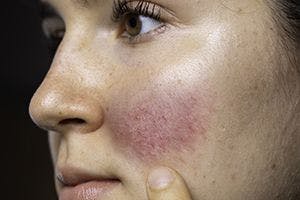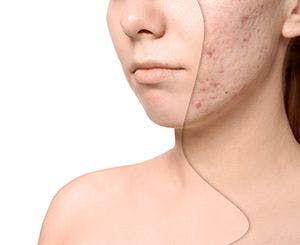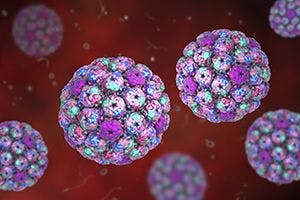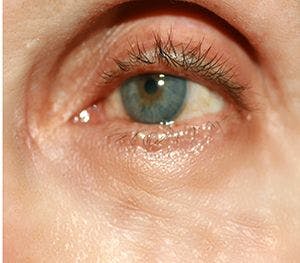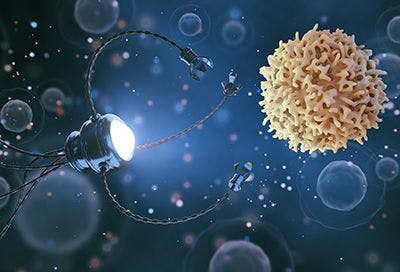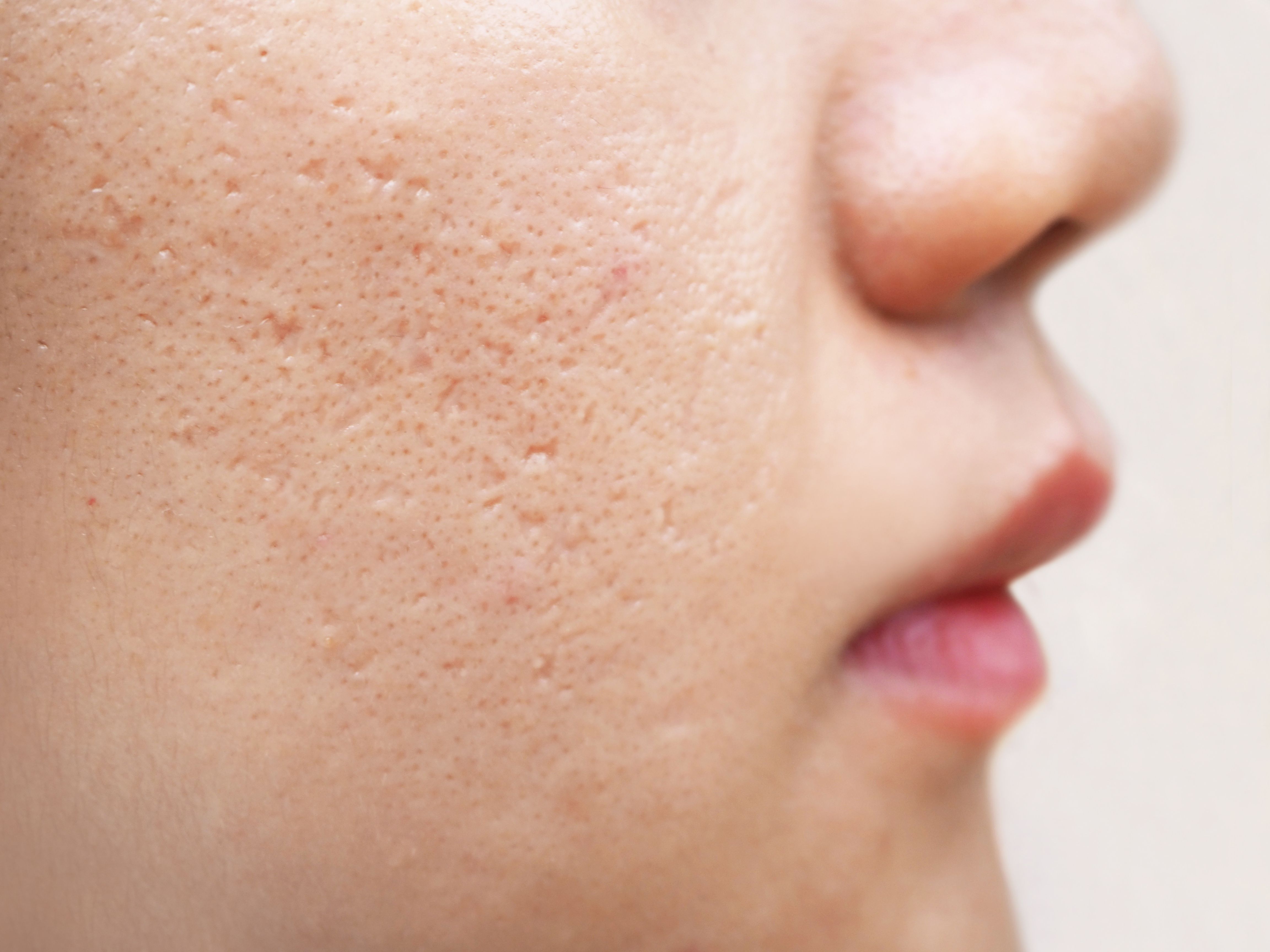- Acne
- Actinic Keratosis
- Aesthetics
- Alopecia
- Atopic Dermatitis
- Buy-and-Bill
- COVID-19
- Case-Based Roundtable
- Chronic Hand Eczema
- Chronic Spontaneous Urticaria
- Drug Watch
- Eczema
- General Dermatology
- Hidradenitis Suppurativa
- Melasma
- NP and PA
- Pediatric Dermatology
- Pigmentary Disorders
- Practice Management
- Precision Medicine and Biologics
- Prurigo Nodularis
- Psoriasis
- Psoriatic Arthritis
- Rare Disease
- Rosacea
- Skin Cancer
- Vitiligo
- Wound Care
Publication
Article
Dermatology Times
A ‘biomarker’ of psychiatric adverse effects with isotretinoin?
Author(s):
While recognizing that a patient’s mental health generally improves with isotretinoin use due to improvement in acne symptoms, clinicians may consider screening for insomnia during the course of treatment, as it may be an indicator for vulnerability to side effects, researchers say.
Isotretinoin, while very effective for acne, is associated with higher odds of insomnia, which could be a red flag for further potential psychiatric vulnerability in the patient, researchers who presented data in an e-poster during the AAD VMX Virtual Meeting Experience 2020, June 12-14.1
“I believe that psychiatric adverse reactions sometimes seen with isotretinoin are idiosyncratic in nature,” says Madhulika A. Gupta, M.D., M.Sc., professor of psychiatry, department of psychiatry, University of Western Ontario, Schulich School of Medicine and Dentistry, London, Ontario, Canada, and head-author of a study poster that was accepted for presentation at the AAD’s annual meeting in Denver.
“When you look at epidemiologic or clinical studies, patients using isotretinoin experience overall improvement in their acne and this improvement is associated with positive mental health and improved quality of life. However, although in larger clinical studies acne patients typically report feeling a lot better after isotretinoin treatment, it remains very difficult to predict in which patient isotretinoin use may be associated with these idiosyncratic neuropsychiatric reactions. The development of insomnia with isotretinoin use may prove to be a ‘biomarker’ for a vulnerability to develop serious psychiatric adverse effects with isotretinoin.”
Dr. Gupta and fellow colleagues conducted a study to assess the impact of isotretinoin on sleep dysfunction and the potential consequences thereof in a group of acne patients. Researchers examined the U.S. Food and Drug Administration Adverse Event Reporting System (FAERS) database from 2004 to 2019 for the adverse event insomnia with the use of isotretinoin in acne patients, where isotretinoin was considered the primary suspect for the adverse event. All available generic and trade names for isotretinoin were used in the search, and the baseline odds of insomnia was calculated with the use of isotretinoin for the indication of acne versus all other acne treatments in the FAERS database.
Of the 218,594 Individual Safety Reports that were identified (average patient age 23 years) where isotretinoin was used for the indication of acne and specified as a primary suspect for an adverse event, results showed that 1,095 Individual Safety Reports (average patient age 20 years) were associated with the adverse event of insomnia. Also, the Reporting Odds Ratio (ROR) for insomnia when isotretinoin was used for acne versus all other acne treatments was 2.19 and highly significant (p<0.0001), reflecting higher odds for insomnia in this patient subgroup using isotretinoin.
“It is unusual for a young acne patient with an average age of late adolescence or early adulthood to have insomnia as a major complaint,” Dr. Gupta says. “Insomnia is a sign of autonomic dysregulation/activation, which in turn has a high association with impulsive behaviors like suicide and aggression. There seems to be a link between isotretinoin use and insomnia; the onset of insomnia in the acne patient using isotretinoin may suggest a vulnerability for other psychiatric adverse events.”
There have been a wide range of psychiatric syndromes that have been associated with isotretinoin such as depression, psychosis and suicide, among others. Insomnia is a comorbidity in over 80% of psychiatric disorders, and it is possible that insomnia may be a particular biomarker that may predict vulnerability for previously idiosyncratic neuropsychiatric reactions.
“Clinicians could try and incorporate symptoms of insomnia in their acne patient screening questions and during the course of treatment with isotretinoin. Perhaps even prior to prescribing isotretinoin, clinicians could specifically ask about any sleep disorders the patient may have, as this may be a red flag suggesting vulnerability for other psychiatric adverse events,” Dr. Gupta suggests. “At the same time the clinician must recognize that, generally, the mental health of the patient improves when given isotretinoin likely due to the significant improvement in acne symptoms.”
Due to the concern regarding the potential for psychiatric adverse events with isotretinoin, clinicians may be hesitant to prescribe it, particularly in patients with a history of any psychiatric issues. As such, Dr. Gupta says that it is possible that some patients do not get the ideal treatment (i.e., isotretinoin) that they would really benefit from.
“It is possible that isotretinoin may be associated with autonomic dysregulation in some patients which may explain symptoms of insomnia. Prospective studies of insomnia and isotretinoin use are necessary to further evaluate this. The results of our study suggest that it may be important to communicate to the acne patient taking isotretinoin that insomnia may be an early sign that something is ‘off,’ and they should inform their prescribing doctor for further evaluation and monitoring,” Dr. Gupta says.
Disclosure:
The authors report no relevant disclosures.
Reference:
1 Gupta MA, Vujcic B, Gupta AK. Isotretinoin Use in Acne is Associated with a Higher Odds of the Adverse Effect of Insomnia: Results from the US FDA Adverse Events Reporting System. Presented as e-poster at the AAD VMX Virtual Meeting Experience 2020, June 12-14. https://eposters.aad.org/posters/13711/13711.pdf
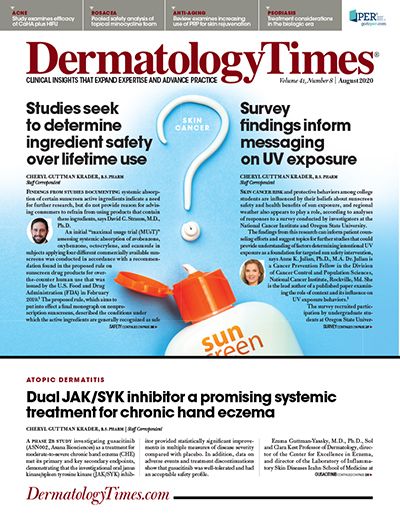
Newsletter
Like what you’re reading? Subscribe to Dermatology Times for weekly updates on therapies, innovations, and real-world practice tips.




